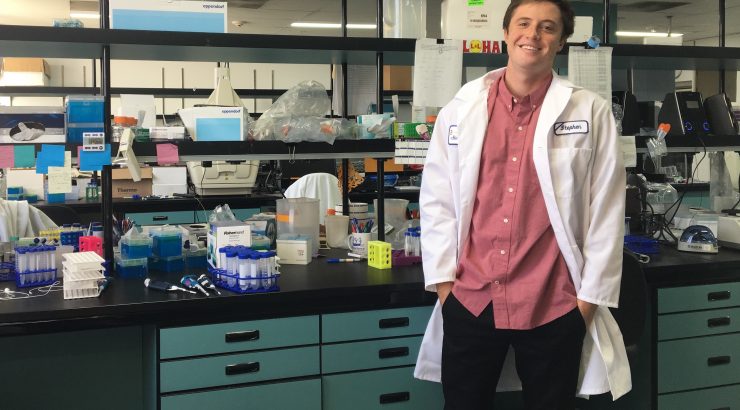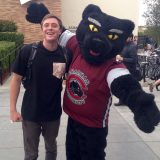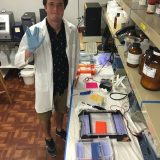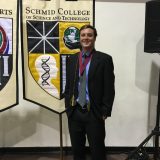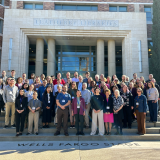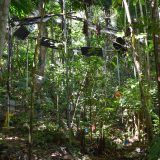Alumni Spotlight: R&D Cell Biologist at Thermo Fisher Scientific – Stephen Neil ’16
January 22, 2019
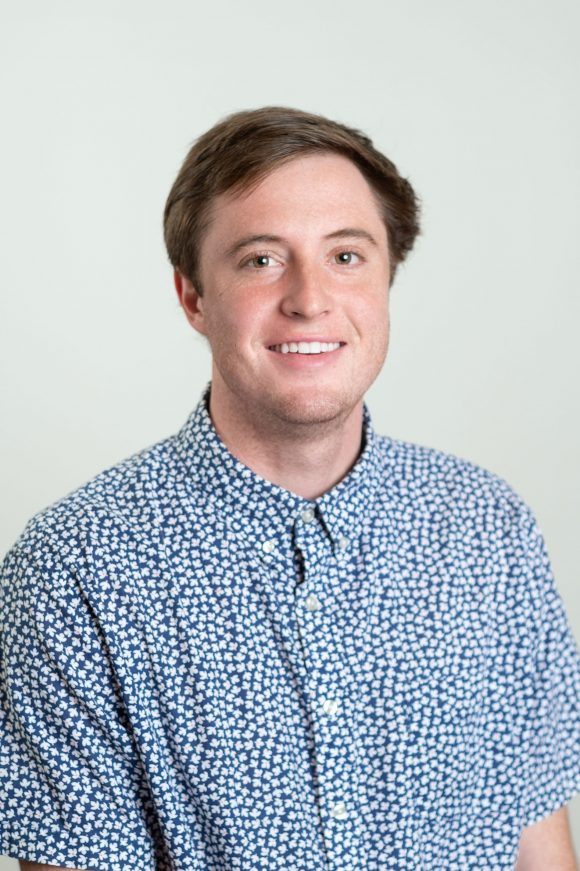 Stephen Neil received his bachelors in biological sciences from Chapman in 2016. Following graduation, Stephen worked for a year as a lab technician at Largen Inc. before moving to Thermo Fisher Scientific.
Stephen Neil received his bachelors in biological sciences from Chapman in 2016. Following graduation, Stephen worked for a year as a lab technician at Largen Inc. before moving to Thermo Fisher Scientific.
During his time at Chapman, Stephen served as captain of the men’s water polo team and was a member of the Greek organization Phi Gamma Delta, known as FIJI.
Read more below as Stephen shares his professional insights and Chapman memories.
Q: Tell me about your career – what do you do on a day to day basis?
As a cell biologist in Research & Development my main objective is to validate and support the commercialization of new reagents for flow cytometry. Products range from traditional antibody specificities to completely novel fluorophores. On a daily basis I create experiments for a wide range of mammalian cell cultures, working with both primary cells and cell lines, including rat, mouse, and human immune cells. These cultures are used as a tool of expression to measure the performance of newly conjugated antibodies. In addition to my R&D responsibilities, I perform a wide range of supportive roles from creating web data protocols for new products, calibrating the flow cytometers, and performing various basic laboratory functions.
Q: What insight do you have to offer current Schmid students and alumni who are searching for employment?
Any experience you have within Schmid can be used to your advantage when applying. Don’t be afraid to share what your strengths are. Give yourself the credit you deserve! You know more than you think you do. It is important to not underestimate your knowledge or laboratory skills. Apply for a lot of jobs and push your comfortable limit. Be sure to send thank you notes, follow ups and ask thoughtful questions while interviewing.
Q: What advice do you have for current Schmid students who want to make the most out of their time at Chapman?
Be proactive with your education and laboratory experience from the beginning. Obtaining your degree is just the beginning of your career. Be willing and ready to pursue as much experience across all disciplines of science to diversify yourself as much as possible. You never know what you might like or the opportunities that may come from expanding your world beyond your everyday science classes.
Q: Which Schmid faculty member(s) made the greatest impact on you and how?
Dr. William Wright: His willingness to help students/alumni with their scientific exploration is truly admirable. He inspired me to help and support others through their learning process.
Dr. Kenneth Sumida: His teaching style is one of the best I’ve ever come across and as a result his courses are my all time favorites. I learned so much from his classes and truly felt like the information was intentionally delivered.
Dr. Elaine Schwartz: As a biologist, Dr. Schwartz taught me how to love chemistry, which was a challenging subject for me. I was impacted by her love of chemistry and that inspired me to want to learn more.
Q: How has your Chapman degree helped you?
My biological sciences degree gave me incredibly in-depth laboratory skills that have translated seamlessly to biotechnology. Chapman’s facilities, equipment, and faculty are truly top of the line and really gave me the foundation and understanding of what the biotechnology industry would be like.
Q: What is your favorite Chapman and/or Schmid memory?
Receiving the Outstanding Senior Leadership Award.
